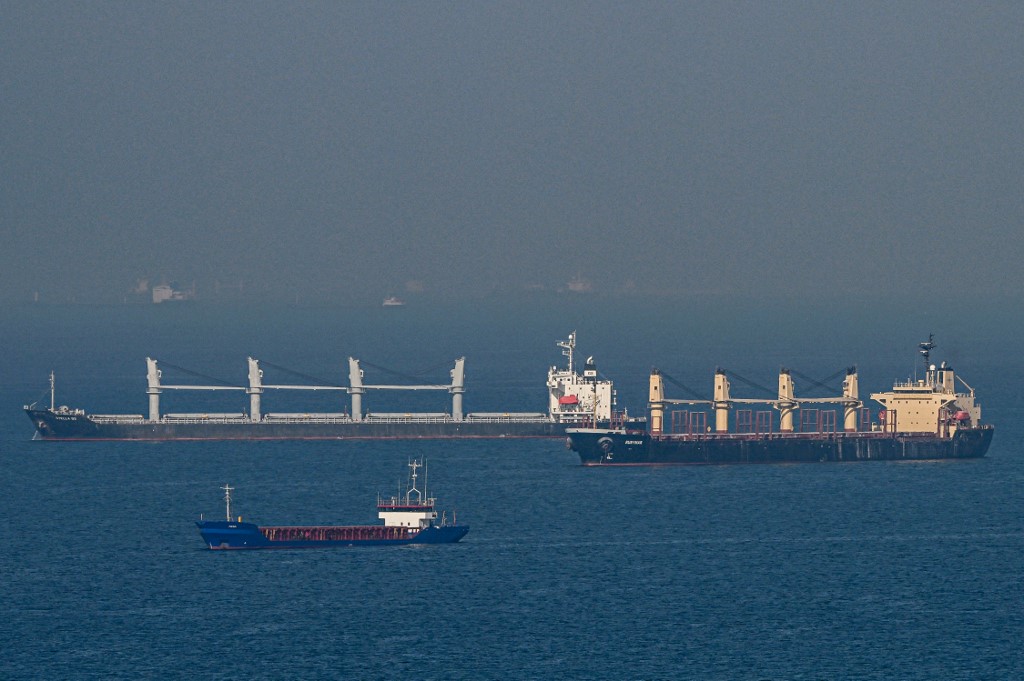Fatih Yurtsever*
Bulgarian Defense Minister Todor Tagarev has announced that an agreement with Turkey and Romania on mine clearance in the Black Sea will be signed in Istanbul next week, according to the Bulgarian News Agency (BTA). Meanwhile, Turkey has declined to allow two mine-hunting ships donated by the UK to Ukraine to pass through the straits, invoking Article 19 of the Montreux Convention Regarding the Regime of the Straits. Recognizing Russia’s invasion of Ukraine as a “war,” Turkey closed the Bosporus and Dardanelles straits to Russian and Ukrainian warships, applying Article 19 of the convention, under which warships belonging to belligerent powers may not pass through the straits. Article 19 does not give Turkey the right to close the straits to all warships, which would require the invocation of Article 21. Amid international focus on the conflict between Hamas and Israel, significant developments are unfolding in the Black Sea region that could have profound implications for the security of both the Black Sea and Turkey.
The Montreux Convention was well drafted by taking into account the right of freedom of navigation, which is one of the basic principles of international law, and the security of Turkey and the Black Sea littoral countries. Turkey is authorized to supervise the passage of warships of non-riparian countries through the straits in the case of war and in peace in line with the principles set out in the convention. Turkey is obliged to inform the Ankara representatives of the High Contracting Parties about requests for the passage of warships. If the parties consider that the requests for passage are contrary to the convention, they can raise objections. Therefore, it is not possible to claim that Turkey has acted arbitrarily in authorizing the passage of warships because the contracting states are also involved in the ratification process as they are informed by Turkey about the transits and have the right to object.
The Montreux Convention, initially set for a 20-year period, remains in force as none of the signatory parties have requested its termination. This endurance underscores the general satisfaction with the convention, which has thus far met the security needs of its parties, with Turkey meticulously upholding its stipulations. However, the geopolitical landscape of the Black Sea has been significantly altered by Russia’s military actions against Ukraine, initiated on February 22, 2022. These events have thrust Black Sea security and the Montreux Convention into the spotlight once again. In response to these shifts, Turkey, as a NATO member commanding the most formidable naval force in the region, must astutely navigate the changing dynamics. While maintaining open diplomatic channels with Russia, Turkey must also dissuade any further Russian escalations that could destabilize the region’s security equilibrium, such as the potential occupation of Odessa. By doing so, Turkey could mitigate the necessity for an increased NATO naval presence in the Black Sea to support Ukraine.
Floating mines in the Black Sea present a significant hazard to merchant vessels, especially those transporting Ukrainian grain from Odessa, necessitating their removal. Deploying the Standing NATO Mine Countermeasures Group 2 (SNMCMG-2) for mine clearance could escalate tensions between Russia and NATO, potentially drawing Turkey into a confrontation with Russia. However, the clearance of these mines is crucial for Ukraine’s security. Turkey’s naval capabilities, including its fleet of minehunters and minesweepers, are well suited for such operations. Consequently, establishing a Mine Countermeasure Task Force led by Turkey, with the participation of Bulgaria and Romania, could effectively neutralize the mine threat without necessitating the presence of SNMCMG-2. This approach could satisfy the security concerns of all parties involved. Ultimately, preserving the Montreux Convention’s integrity is essential for Turkey. Therefore, it is imperative for Turkey to carefully assess the evolving dynamics in the Black Sea and spearhead initiatives that safeguard the security interests of all coastal nations. To achieve this, Turkey must maintain a formidable naval presence in the Black Sea, capable of deterring adversarial actions if required.
* Fatih Yurtsever is a former naval officer in the Turkish Armed Forces. He is using a pseudonym out of security concerns.

